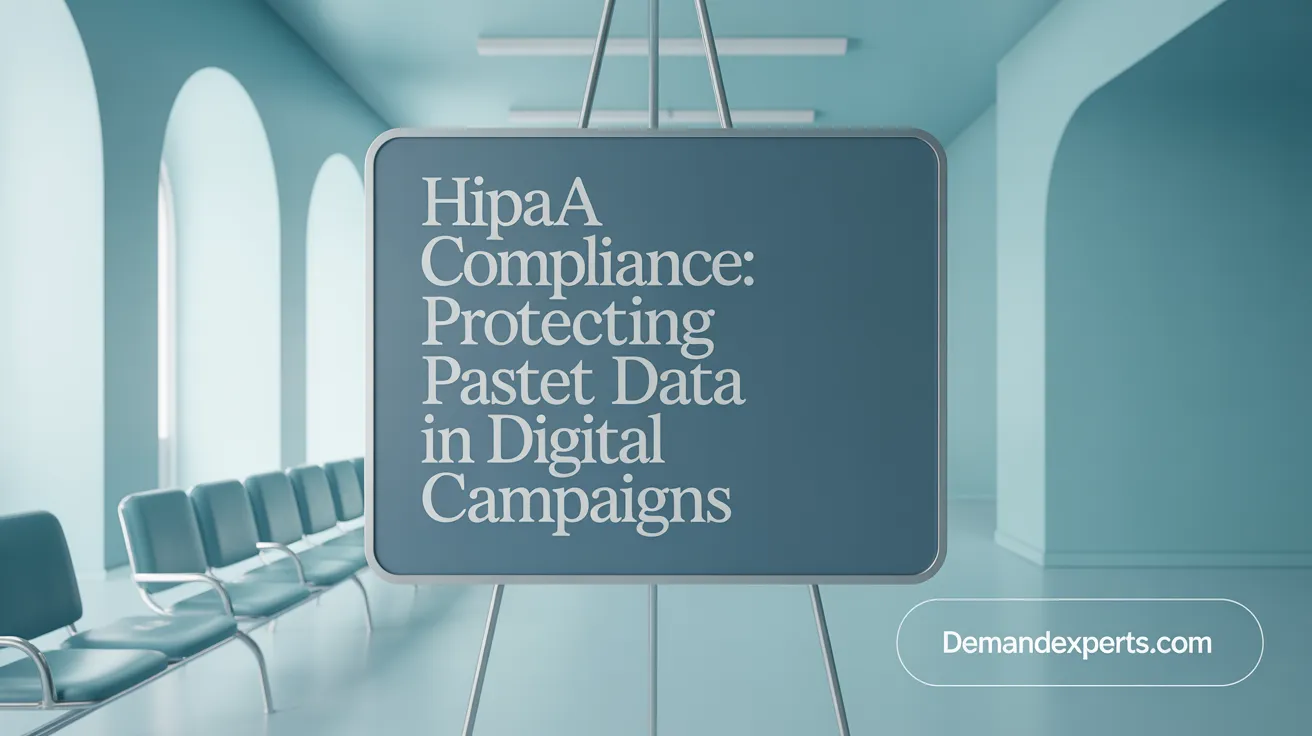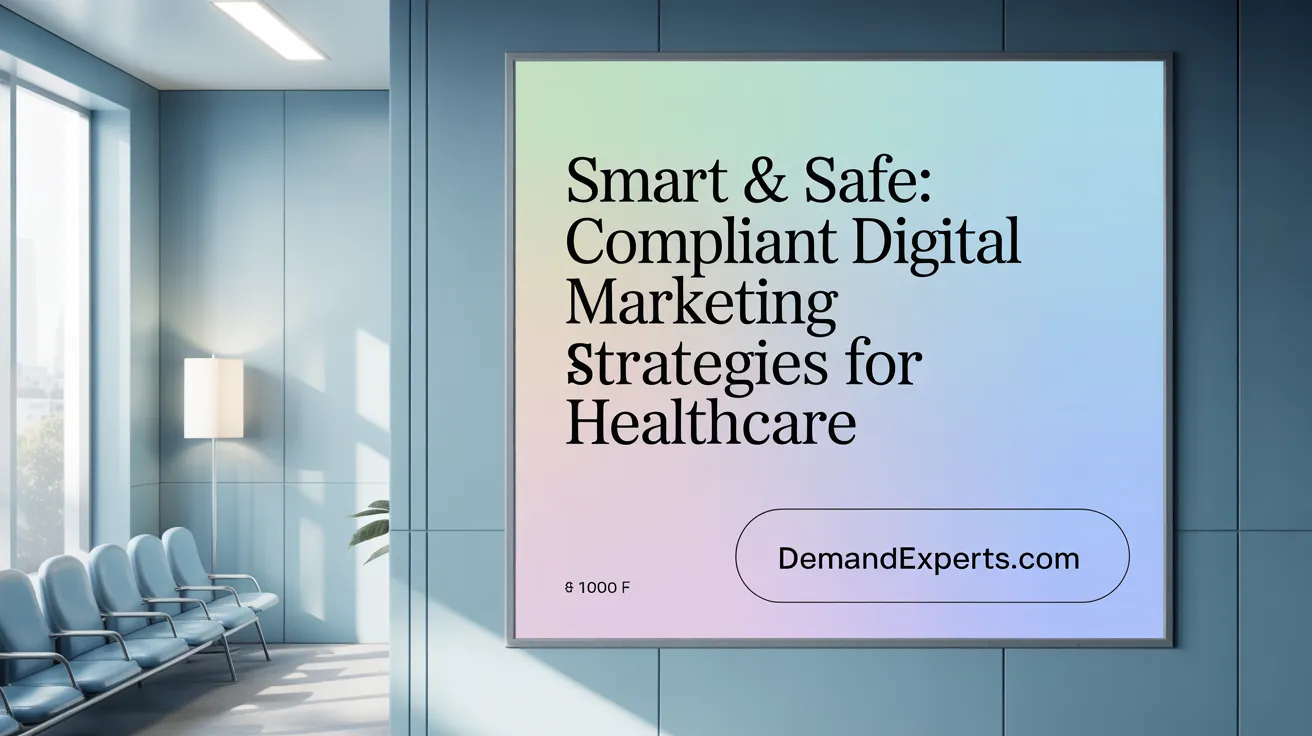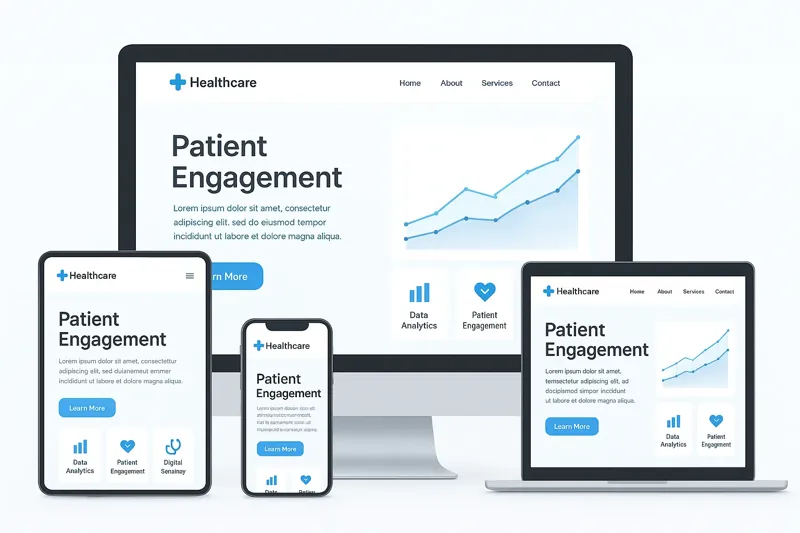Understanding the Regulatory Landscape in Healthcare Digital Marketing
Navigating digital marketing in healthcare presents a complex landscape marked by stringent regulatory demands and evolving compliance challenges. Healthcare organizations must balance engaging digital campaigns with unwavering adherence to laws protecting patient privacy, truthful advertising, and data security. This article explores key compliance considerations, the impact of federal and state regulation, and practical strategies to ensure effective, ethical healthcare marketing in the digital age.
Key Regulatory Bodies and Legal Frameworks Governing Healthcare Digital Advertising
Which federal agencies regulate digital advertising in healthcare and what are their roles?
Several federal agencies regulate healthcare digital advertising to ensure truthful, accurate, and safe communication.
- Federal Trade Commission (FTC): Oversees advertising to guarantee claims are truthful, not misleading, and that endorsements or testimonials include clear disclosures. For more on FTC healthcare advertising requirements.
- Food and Drug Administration (FDA): Specifically regulates advertisements for prescription drugs and medical devices, requiring balanced presentation of benefits and risks, including full disclosure of safety information. See details on FDA oversight of prescription drug advertising and FDA crackdown on deceptive drug advertising.
- Centers for Medicare & Medicaid Services (CMS): Governs marketing related to Medicare and Medicaid services, mandating accuracy and clear disclosure of any service restrictions or limitations. Learn more about CMS Medicare and Medicaid advertising guidelines.
Healthcare marketers must also follow state and local healthcare advertising laws, which can vary widely by jurisdiction.
How do privacy laws like HIPAA and GDPR affect healthcare digital advertising?
Privacy regulations such as HIPAA (in the U.S.) and GDPR (in the EU) impose strict controls on digital advertising involving health data:
- HIPAA: Requires that any use or disclosure of Protected Health Information (PHI) for marketing purposes must have prior written authorization from the individual, except in certain narrow exceptions. It mandates robust data security measures to protect patient information in digital campaigns. Refer to the HIPAA Privacy Rule marketing guidelines and HIPAA marketing rules.
- GDPR: Requires explicit consent for processing personal health data of EU residents, emphasizing data protection and user rights. For a broader look at HIPAA and GDPR impacts on healthcare advertising.
These laws influence how healthcare advertisers collect, store, and use patient data, often limiting the use of detailed health information for targeting and necessitating compliance with secure data handling standards. For more insights, see HIPAA compliance in digital marketing and Navigating healthcare compliance challenges.
Together, these regulatory frameworks ensure that healthcare digital advertising balances effective communication with patient privacy and safety.
Ensuring HIPAA Compliance in Digital Marketing Campaigns

What constitutes marketing under HIPAA, and when is patient authorization required?
HIPAA defines marketing as any communication that encourages recipients to purchase or use a product or service. When such marketing involves the use or disclosure of protected health information (PHI), prior written authorization from the patient or their representative is required. However, there are notable exceptions to this rule. Communications made face-to-face by the covered entity, nominal promotional gifts, refill reminders for prescriptions, and information about health-related products or services provided by the healthcare entity itself—without receiving additional payment—do not require prior authorization. For detailed guidance, see HIPAA Privacy Rule marketing guidelines and Marketing involving PHI under HIPAA.
Requirements for using PHI in marketing
The use or disclosure of PHI for marketing must be carefully controlled. If financial remuneration is involved in exchange for PHI, written authorization is mandatory. The PHI involved can include any individually identifiable health information, such as demographics or health conditions. Importantly, any data shared with third-party ad platforms or marketing tools must be stripped of PHI unless the platform has a signed Business Associate Agreement (BAA) ensuring HIPAA compliance. For more on compliance strategies, consult HIPAA marketing authorization requirements and HIPAA marketing rules and compliance.
Exceptions to authorization requirements
Certain communications are excluded from the HIPAA marketing definition and thus do not require patient authorization. These include treatment-related communications, case management, care coordination, and communications about government health programs. Also, sending reminders for prescription refills or providing nominal promotional gifts falls under these exceptions. Additional details are available in the HIPAA marketing exceptions and Marketing authorization exceptions.
Best practices for digital compliance
Healthcare organizations should adopt stringent measures to maintain HIPAA compliance in digital marketing. These include:
- Removing or anonymizing PHI before sharing data with third-party platforms
- Employing HIPAA-compliant analytical tools and marketing platforms with signed BAAs
- Obtaining explicit patient consent before using PHI in marketing campaigns
- Using encrypted and secure channels for communications
- Training marketing teams on privacy and compliance regulations
- Focusing campaigns on general health education rather than sensitive personal information
- Providing clear opt-out mechanisms for marketing communications
- Avoiding inclusion of PHI in social media posts or email subject lines
For practical guidance, see HIPAA compliance in digital marketing, Healthcare digital marketing strategies, and Secure healthcare marketing strategies.
Consequences of HIPAA violations
Violating HIPAA marketing regulations can lead to severe consequences, including hefty fines ranging from thousands to millions of dollars, depending on the violation's nature and negligence level. Criminal penalties, including jail time, are possible in cases involving malicious intent. Beyond legal repercussions, violations risk damaging patient trust and the healthcare organization's reputation. Continuous training, audit checks, and adherence to compliance protocols are essential to mitigate these risks. More information on enforcement and penalties can be found in Healthcare compliance enforcement trends 2024 and HIPAA violation penalties and fines.
FDA Enforcement and Transparency in Prescription Drug Advertising
How is the FDA increasing enforcement of regulations in digital drug advertising?
The FDA has stepped up its enforcement effort against deceptive digital drug advertisements through the issuance of numerous cease-and-desist and warning letters. These actions target ads that misrepresent drug benefits or omit important risk information. Leveraging advanced technology such as artificial intelligence, the FDA proactively monitors ads to ensure full safety disclosures are made. This technology-assisted oversight helps detect misleading claims early and enforces a truthful presentation of benefits alongside the risks (FDA crackdown on deceptive drug advertising, FDA crackdown on DTC advertising).
What are the key transparency requirements for prescription drug advertising?
Prescription drug ads must present a balanced view of benefits and risks. They are required to disclose major side effects, contraindications, and any financial relationships of endorsers to avoid conflicts of interest. Recent regulatory reforms close previous loopholes by requiring that all critical safety information appears directly in the advertisement, eliminating the prior allowance to include extensive disclaimers solely via websites or toll-free numbers. This ensures consumer protection by making safety details more accessible and easier to understand (FDA prescription drug advertising rules, HHS and FDA drug ad safety requirements).
Impact of Legislation and Consumer Protection
These increased enforcement efforts and transparency mandates by the FDA protect consumers by fostering an environment of honesty and accountability. By mandating comprehensive safety disclosures within digital ads and using AI to actively monitor compliance, the FDA is promoting informed decision-making and restoring public trust in pharmaceutical advertising (FDA enforcement increase, Restoring transparency in drug advertising).
Challenges Faced by Healthcare Compliance Teams in Digital Campaigns

What challenges do healthcare compliance professionals face in managing digital marketing campaigns?
Healthcare compliance teams encounter significant challenges in overseeing digital marketing efforts. They are often stretched thin by the intricate web of federal and state healthcare regulations that vary by jurisdiction. This complexity is compounded by emerging risks, such as cyberattacks targeting sensitive patient data and the ethical and privacy issues presented by the adoption of artificial intelligence (AI) in marketing.
Limited budgets and staffing shortages further strain these teams, with less than one-third of compliance professionals feeling fully prepared for upcoming challenges. Resource constraints hinder their ability to continuously monitor digital campaigns and keep pace with changing regulations.
How can organizations strengthen compliance efforts amidst these challenges?
Healthcare organizations can enhance compliance by strategically leveraging AI tools for risk assessment and data analysis, provided these technologies are governed with strict oversight to prevent new vulnerabilities. Collaboration with external expertise, including legal advisors, industry associations, and compliance consultants, helps bridge internal resource gaps.
Ongoing staff training is critical to ensure all team members understand evolving policies and best practices. Regular audits of high-risk compliance areas, combined with well-defined breach notification and workforce response protocols, contribute to robust compliance programs.
Emphasizing these multi-faceted strategies enables healthcare providers to mitigate legal risks, maintain patient trust, and uphold integrity in their digital marketing campaigns.
Data Privacy and Ethical Considerations in Healthcare Digital Marketing

What ethical and privacy principles should guide healthcare digital marketing?
Healthcare digital marketing must uphold patient privacy by relying on anonymized or aggregated data rather than personally identifiable information. Clear, informed consent is vital, ensuring patients understand how their data will be used with transparent opt-in processes. Avoiding intrusive tracking tools like third-party cookies or pixels protects sensitive information. Ethical SEO focuses on producing trustworthy, accurate content that respects patients and avoids manipulation or fear-based tactics, thus maintaining integrity. For more on Ethical healthcare marketing and Privacy engagement metrics in healthcare marketing.
How does compliance contribute to patient trust and engagement?
Strict adherence to laws such as HIPAA and GDPR demonstrates a healthcare provider’s commitment to protecting patient data and privacy. Transparent communication about marketing intentions and diligent protection of Protected Health Information (PHI) build confidence among patients. This trust translates into stronger patient engagement and loyalty, as patients feel secure and respected. Compliance is therefore not only a legal obligation but a foundation for meaningful digital marketing relationships. See also Healthcare compliance challenges for context on compliance impact.
Importance of privacy-first marketing approaches
Adopting a privacy-first mindset means using data responsibly and minimizing risks of breaches or unauthorized disclosures. Leveraging secure, HIPAA-compliant platforms and avoiding sharing PHI with noncompliant third-party services form the backbone of ethical healthcare marketing. Explore HIPAA-compliant healthcare marketing tools and strategies at HIPAA marketing compliance.
Consent and transparency in data use
Patients must give explicit permission before their data is used for marketing. Providers should clearly explain data collection methods, purposes, and any sharing involved. Easy opt-out options further empower patients. Refer to detailed HIPAA marketing rules and HIPAA Authorization requirements for comprehensive guidance.
Avoiding intrusive tracking and protecting PHI
Healthcare marketers must refrain from deploying invasive tracking technologies that can expose private health details. Secure handling of PHI includes encryption, access controls, and regular staff training. More on HIPAA Privacy Rule marketing guidelines and Protecting patient privacy in healthcare advertising.
Ethical SEO and truthful content
Content should be evidence-based, vetted, and transparent, focusing on educating and supporting patients rather than exploiting fears or misinformation. Learn about Healthcare digital marketing strategy essentials and Truthful claims and endorsement disclosures.
Building patient trust through compliance
Consistently meeting and exceeding compliance standards enhances credibility, ultimately improving marketing effectiveness and patient relationships. Review Healthcare compliance hazards and Compliance monitoring for healthcare advertisements.
Effective Digital Marketing Strategies That Align with Compliance

What digital marketing strategies are most effective for healthcare providers while ensuring compliance?
Effective healthcare digital marketing starts with SEO, emphasizing relevant and accurate content along with local keywords to boost visibility. With 77% of patients conducting online research before appointments and 44% booking visits after mobile research, mobile-optimized, responsive websites are vital for accessibility and user experience (Digital marketing in healthcare).
Patient engagement thrives through active social media platforms and secure email campaigns designed to protect patient privacy. These channels facilitate education and direct communication, increasing trust and adherence to treatment plans (Healthcare Digital Marketing).
Utilizing HIPAA-compliant marketing tools and analytics platforms ensures the secure handling of protected health information. Such compliance enables real-time campaign monitoring and adaptation without risking patient privacy or regulatory violations (HIPAA and GDPR impacts on healthcare advertising, HIPAA compliance in digital marketing).
How are new technologies like AI and programmatic advertising used compliantly in healthcare marketing?
Artificial Intelligence (AI) enhances healthcare marketing by empowering data analysis, enabling personalized messaging, and automating compliance monitoring. However, governance and strict data protections are mandatory to prevent misuse of sensitive data (Healthcare compliance challenges, Healthcare risk and compliance challenges).
Programmatic advertising allows automated, data-driven audience targeting through demographic segmentation that excludes sensitive health details, aligning with privacy regulations. Strategies like A/B testing of creatives and integrating lead-generation channels craft effective user journeys that respect patient confidentiality (Healthcare Programmatic Advertising).
Together, these innovations improve marketing precision and efficiency while maintaining legal and ethical standards, reinforcing patient trust and organizational reputation (Regulatory Challenges in Healthcare Marketing, Ethical healthcare marketing).
Future Outlook: Navigating Regulatory Trends and Compliance Enforcement in Healthcare Marketing

What enforcement trends and regulatory developments are anticipated in healthcare digital marketing?
Healthcare marketing faces rising scrutiny as federal agencies like the Department of Health and Human Services (HHS), Office for Civil Rights (OCR), Federal Trade Commission (FTC), and Food and Drug Administration (FDA) gear up for stricter enforcement actions. This includes heavier penalties for HIPAA breaches and an intensified crackdown on deceptive drug advertising.
Expect evolving rules around digital data practices, especially concerning online tracking technologies and the responsible use of third-party data in campaigns. Transparency requirements are tightening to protect patient privacy and ensure truthful, balanced advertisements. Use of advanced technologies such as artificial intelligence to monitor compliance is becoming more prominent.
How should healthcare organizations prepare for upcoming compliance challenges?
Healthcare entities must develop broad, adaptable compliance strategies focusing on continuous risk management. This involves comprehensive workforce training to stay abreast of complex regulations paired with ongoing advertisement monitoring and meticulous cybersecurity measures to protect sensitive patient data.
Adoption of secure, HIPAA-compliant marketing platforms and technologies is critical to maintain legal conformity. Organizations should also implement routine audits, maintain documentation rigorously, and keep current with federal, state, and international regulatory changes.
Moreover, a collaborative approach with legal advisors, compliance consultants, and industry groups facilitates navigating regulations spanning multiple jurisdictions. This multi-state and global readiness is essential as healthcare marketing campaigns increasingly cross geographic and digital boundaries.
Healthcare marketing professionals who blend technological solutions with strong compliance cultures will be best positioned to reduce legal risks and preserve patient trust in an evolving regulatory landscape.
Balancing Innovation and Compliance for Successful Healthcare Digital Marketing
The rapidly evolving digital marketing landscape in healthcare demands a meticulous approach to regulatory compliance, privacy protection, and ethical standards. By understanding the intricate federal and local regulations, embracing HIPAA-compliant practices, and adopting advanced compliance technologies, healthcare organizations can innovate confidently and engage patients effectively. Proactive monitoring, continuous education, and collaboration with compliance experts will be essential to stay ahead of enforcement trends and maintain public trust. Ultimately, blending creativity with compliance enables healthcare marketers to deliver impactful, trustworthy campaigns that promote both organizational success and patient well-being.
Understanding the Regulatory Landscape in Healthcare Digital Marketing
Navigating digital marketing in healthcare presents a complex landscape marked by stringent regulatory demands and evolving compliance challenges. Healthcare organizations must balance engaging digital campaigns with unwavering adherence to laws protecting patient privacy, truthful advertising, and data security. This article explores key compliance considerations, the impact of federal and state regulation, and practical strategies to ensure effective, ethical healthcare marketing in the digital age.
Key Regulatory Bodies and Legal Frameworks Governing Healthcare Digital Advertising
Which federal agencies regulate digital advertising in healthcare and what are their roles?
Several federal agencies regulate healthcare digital advertising to ensure truthful, accurate, and safe communication.
- Federal Trade Commission (FTC): Oversees advertising to guarantee claims are truthful, not misleading, and that endorsements or testimonials include clear disclosures. For more on FTC healthcare advertising requirements.
- Food and Drug Administration (FDA): Specifically regulates advertisements for prescription drugs and medical devices, requiring balanced presentation of benefits and risks, including full disclosure of safety information. See details on FDA oversight of prescription drug advertising and FDA crackdown on deceptive drug advertising.
- Centers for Medicare & Medicaid Services (CMS): Governs marketing related to Medicare and Medicaid services, mandating accuracy and clear disclosure of any service restrictions or limitations. Learn more about CMS Medicare and Medicaid advertising guidelines.
Healthcare marketers must also follow state and local healthcare advertising laws, which can vary widely by jurisdiction.
How do privacy laws like HIPAA and GDPR affect healthcare digital advertising?
Privacy regulations such as HIPAA (in the U.S.) and GDPR (in the EU) impose strict controls on digital advertising involving health data:
- HIPAA: Requires that any use or disclosure of Protected Health Information (PHI) for marketing purposes must have prior written authorization from the individual, except in certain narrow exceptions. It mandates robust data security measures to protect patient information in digital campaigns. Refer to the HIPAA Privacy Rule marketing guidelines and HIPAA marketing rules.
- GDPR: Requires explicit consent for processing personal health data of EU residents, emphasizing data protection and user rights. For a broader look at HIPAA and GDPR impacts on healthcare advertising.
These laws influence how healthcare advertisers collect, store, and use patient data, often limiting the use of detailed health information for targeting and necessitating compliance with secure data handling standards. For more insights, see HIPAA compliance in digital marketing and Navigating healthcare compliance challenges.
Together, these regulatory frameworks ensure that healthcare digital advertising balances effective communication with patient privacy and safety.
Ensuring HIPAA Compliance in Digital Marketing Campaigns

What constitutes marketing under HIPAA, and when is patient authorization required?
HIPAA defines marketing as any communication that encourages recipients to purchase or use a product or service. When such marketing involves the use or disclosure of protected health information (PHI), prior written authorization from the patient or their representative is required. However, there are notable exceptions to this rule. Communications made face-to-face by the covered entity, nominal promotional gifts, refill reminders for prescriptions, and information about health-related products or services provided by the healthcare entity itself—without receiving additional payment—do not require prior authorization. For detailed guidance, see HIPAA Privacy Rule marketing guidelines and Marketing involving PHI under HIPAA.
Requirements for using PHI in marketing
The use or disclosure of PHI for marketing must be carefully controlled. If financial remuneration is involved in exchange for PHI, written authorization is mandatory. The PHI involved can include any individually identifiable health information, such as demographics or health conditions. Importantly, any data shared with third-party ad platforms or marketing tools must be stripped of PHI unless the platform has a signed Business Associate Agreement (BAA) ensuring HIPAA compliance. For more on compliance strategies, consult HIPAA marketing authorization requirements and HIPAA marketing rules and compliance.
Exceptions to authorization requirements
Certain communications are excluded from the HIPAA marketing definition and thus do not require patient authorization. These include treatment-related communications, case management, care coordination, and communications about government health programs. Also, sending reminders for prescription refills or providing nominal promotional gifts falls under these exceptions. Additional details are available in the HIPAA marketing exceptions and Marketing authorization exceptions.
Best practices for digital compliance
Healthcare organizations should adopt stringent measures to maintain HIPAA compliance in digital marketing. These include:
- Removing or anonymizing PHI before sharing data with third-party platforms
- Employing HIPAA-compliant analytical tools and marketing platforms with signed BAAs
- Obtaining explicit patient consent before using PHI in marketing campaigns
- Using encrypted and secure channels for communications
- Training marketing teams on privacy and compliance regulations
- Focusing campaigns on general health education rather than sensitive personal information
- Providing clear opt-out mechanisms for marketing communications
- Avoiding inclusion of PHI in social media posts or email subject lines
For practical guidance, see HIPAA compliance in digital marketing, Healthcare digital marketing strategies, and Secure healthcare marketing strategies.
Consequences of HIPAA violations
Violating HIPAA marketing regulations can lead to severe consequences, including hefty fines ranging from thousands to millions of dollars, depending on the violation's nature and negligence level. Criminal penalties, including jail time, are possible in cases involving malicious intent. Beyond legal repercussions, violations risk damaging patient trust and the healthcare organization's reputation. Continuous training, audit checks, and adherence to compliance protocols are essential to mitigate these risks. More information on enforcement and penalties can be found in Healthcare compliance enforcement trends 2024 and HIPAA violation penalties and fines.
FDA Enforcement and Transparency in Prescription Drug Advertising
How is the FDA increasing enforcement of regulations in digital drug advertising?
The FDA has stepped up its enforcement effort against deceptive digital drug advertisements through the issuance of numerous cease-and-desist and warning letters. These actions target ads that misrepresent drug benefits or omit important risk information. Leveraging advanced technology such as artificial intelligence, the FDA proactively monitors ads to ensure full safety disclosures are made. This technology-assisted oversight helps detect misleading claims early and enforces a truthful presentation of benefits alongside the risks (FDA crackdown on deceptive drug advertising, FDA crackdown on DTC advertising).
What are the key transparency requirements for prescription drug advertising?
Prescription drug ads must present a balanced view of benefits and risks. They are required to disclose major side effects, contraindications, and any financial relationships of endorsers to avoid conflicts of interest. Recent regulatory reforms close previous loopholes by requiring that all critical safety information appears directly in the advertisement, eliminating the prior allowance to include extensive disclaimers solely via websites or toll-free numbers. This ensures consumer protection by making safety details more accessible and easier to understand (FDA prescription drug advertising rules, HHS and FDA drug ad safety requirements).
Impact of Legislation and Consumer Protection
These increased enforcement efforts and transparency mandates by the FDA protect consumers by fostering an environment of honesty and accountability. By mandating comprehensive safety disclosures within digital ads and using AI to actively monitor compliance, the FDA is promoting informed decision-making and restoring public trust in pharmaceutical advertising (FDA enforcement increase, Restoring transparency in drug advertising).
Challenges Faced by Healthcare Compliance Teams in Digital Campaigns

What challenges do healthcare compliance professionals face in managing digital marketing campaigns?
Healthcare compliance teams encounter significant challenges in overseeing digital marketing efforts. They are often stretched thin by the intricate web of federal and state healthcare regulations that vary by jurisdiction. This complexity is compounded by emerging risks, such as cyberattacks targeting sensitive patient data and the ethical and privacy issues presented by the adoption of artificial intelligence (AI) in marketing.
Limited budgets and staffing shortages further strain these teams, with less than one-third of compliance professionals feeling fully prepared for upcoming challenges. Resource constraints hinder their ability to continuously monitor digital campaigns and keep pace with changing regulations.
How can organizations strengthen compliance efforts amidst these challenges?
Healthcare organizations can enhance compliance by strategically leveraging AI tools for risk assessment and data analysis, provided these technologies are governed with strict oversight to prevent new vulnerabilities. Collaboration with external expertise, including legal advisors, industry associations, and compliance consultants, helps bridge internal resource gaps.
Ongoing staff training is critical to ensure all team members understand evolving policies and best practices. Regular audits of high-risk compliance areas, combined with well-defined breach notification and workforce response protocols, contribute to robust compliance programs.
Emphasizing these multi-faceted strategies enables healthcare providers to mitigate legal risks, maintain patient trust, and uphold integrity in their digital marketing campaigns.
Data Privacy and Ethical Considerations in Healthcare Digital Marketing

What ethical and privacy principles should guide healthcare digital marketing?
Healthcare digital marketing must uphold patient privacy by relying on anonymized or aggregated data rather than personally identifiable information. Clear, informed consent is vital, ensuring patients understand how their data will be used with transparent opt-in processes. Avoiding intrusive tracking tools like third-party cookies or pixels protects sensitive information. Ethical SEO focuses on producing trustworthy, accurate content that respects patients and avoids manipulation or fear-based tactics, thus maintaining integrity. For more on Ethical healthcare marketing and Privacy engagement metrics in healthcare marketing.
How does compliance contribute to patient trust and engagement?
Strict adherence to laws such as HIPAA and GDPR demonstrates a healthcare provider’s commitment to protecting patient data and privacy. Transparent communication about marketing intentions and diligent protection of Protected Health Information (PHI) build confidence among patients. This trust translates into stronger patient engagement and loyalty, as patients feel secure and respected. Compliance is therefore not only a legal obligation but a foundation for meaningful digital marketing relationships. See also Healthcare compliance challenges for context on compliance impact.
Importance of privacy-first marketing approaches
Adopting a privacy-first mindset means using data responsibly and minimizing risks of breaches or unauthorized disclosures. Leveraging secure, HIPAA-compliant platforms and avoiding sharing PHI with noncompliant third-party services form the backbone of ethical healthcare marketing. Explore HIPAA-compliant healthcare marketing tools and strategies at HIPAA marketing compliance.
Consent and transparency in data use
Patients must give explicit permission before their data is used for marketing. Providers should clearly explain data collection methods, purposes, and any sharing involved. Easy opt-out options further empower patients. Refer to detailed HIPAA marketing rules and HIPAA Authorization requirements for comprehensive guidance.
Avoiding intrusive tracking and protecting PHI
Healthcare marketers must refrain from deploying invasive tracking technologies that can expose private health details. Secure handling of PHI includes encryption, access controls, and regular staff training. More on HIPAA Privacy Rule marketing guidelines and Protecting patient privacy in healthcare advertising.
Ethical SEO and truthful content
Content should be evidence-based, vetted, and transparent, focusing on educating and supporting patients rather than exploiting fears or misinformation. Learn about Healthcare digital marketing strategy essentials and Truthful claims and endorsement disclosures.
Building patient trust through compliance
Consistently meeting and exceeding compliance standards enhances credibility, ultimately improving marketing effectiveness and patient relationships. Review Healthcare compliance hazards and Compliance monitoring for healthcare advertisements.
Effective Digital Marketing Strategies That Align with Compliance

What digital marketing strategies are most effective for healthcare providers while ensuring compliance?
Effective healthcare digital marketing starts with SEO, emphasizing relevant and accurate content along with local keywords to boost visibility. With 77% of patients conducting online research before appointments and 44% booking visits after mobile research, mobile-optimized, responsive websites are vital for accessibility and user experience (Digital marketing in healthcare).
Patient engagement thrives through active social media platforms and secure email campaigns designed to protect patient privacy. These channels facilitate education and direct communication, increasing trust and adherence to treatment plans (Healthcare Digital Marketing).
Utilizing HIPAA-compliant marketing tools and analytics platforms ensures the secure handling of protected health information. Such compliance enables real-time campaign monitoring and adaptation without risking patient privacy or regulatory violations (HIPAA and GDPR impacts on healthcare advertising, HIPAA compliance in digital marketing).
How are new technologies like AI and programmatic advertising used compliantly in healthcare marketing?
Artificial Intelligence (AI) enhances healthcare marketing by empowering data analysis, enabling personalized messaging, and automating compliance monitoring. However, governance and strict data protections are mandatory to prevent misuse of sensitive data (Healthcare compliance challenges, Healthcare risk and compliance challenges).
Programmatic advertising allows automated, data-driven audience targeting through demographic segmentation that excludes sensitive health details, aligning with privacy regulations. Strategies like A/B testing of creatives and integrating lead-generation channels craft effective user journeys that respect patient confidentiality (Healthcare Programmatic Advertising).
Together, these innovations improve marketing precision and efficiency while maintaining legal and ethical standards, reinforcing patient trust and organizational reputation (Regulatory Challenges in Healthcare Marketing, Ethical healthcare marketing).
Future Outlook: Navigating Regulatory Trends and Compliance Enforcement in Healthcare Marketing

What enforcement trends and regulatory developments are anticipated in healthcare digital marketing?
Healthcare marketing faces rising scrutiny as federal agencies like the Department of Health and Human Services (HHS), Office for Civil Rights (OCR), Federal Trade Commission (FTC), and Food and Drug Administration (FDA) gear up for stricter enforcement actions. This includes heavier penalties for HIPAA breaches and an intensified crackdown on deceptive drug advertising.
Expect evolving rules around digital data practices, especially concerning online tracking technologies and the responsible use of third-party data in campaigns. Transparency requirements are tightening to protect patient privacy and ensure truthful, balanced advertisements. Use of advanced technologies such as artificial intelligence to monitor compliance is becoming more prominent.
How should healthcare organizations prepare for upcoming compliance challenges?
Healthcare entities must develop broad, adaptable compliance strategies focusing on continuous risk management. This involves comprehensive workforce training to stay abreast of complex regulations paired with ongoing advertisement monitoring and meticulous cybersecurity measures to protect sensitive patient data.
Adoption of secure, HIPAA-compliant marketing platforms and technologies is critical to maintain legal conformity. Organizations should also implement routine audits, maintain documentation rigorously, and keep current with federal, state, and international regulatory changes.
Moreover, a collaborative approach with legal advisors, compliance consultants, and industry groups facilitates navigating regulations spanning multiple jurisdictions. This multi-state and global readiness is essential as healthcare marketing campaigns increasingly cross geographic and digital boundaries.
Healthcare marketing professionals who blend technological solutions with strong compliance cultures will be best positioned to reduce legal risks and preserve patient trust in an evolving regulatory landscape.
Balancing Innovation and Compliance for Successful Healthcare Digital Marketing
The rapidly evolving digital marketing landscape in healthcare demands a meticulous approach to regulatory compliance, privacy protection, and ethical standards. By understanding the intricate federal and local regulations, embracing HIPAA-compliant practices, and adopting advanced compliance technologies, healthcare organizations can innovate confidently and engage patients effectively. Proactive monitoring, continuous education, and collaboration with compliance experts will be essential to stay ahead of enforcement trends and maintain public trust. Ultimately, blending creativity with compliance enables healthcare marketers to deliver impactful, trustworthy campaigns that promote both organizational success and patient well-being.






